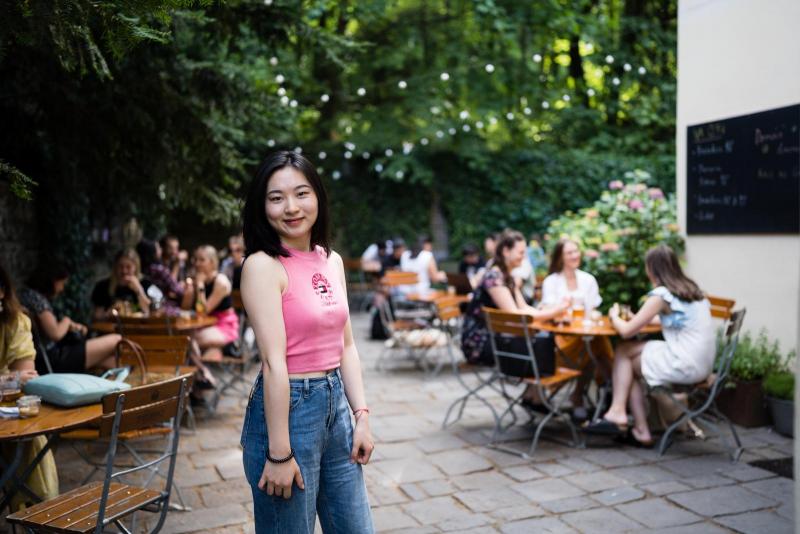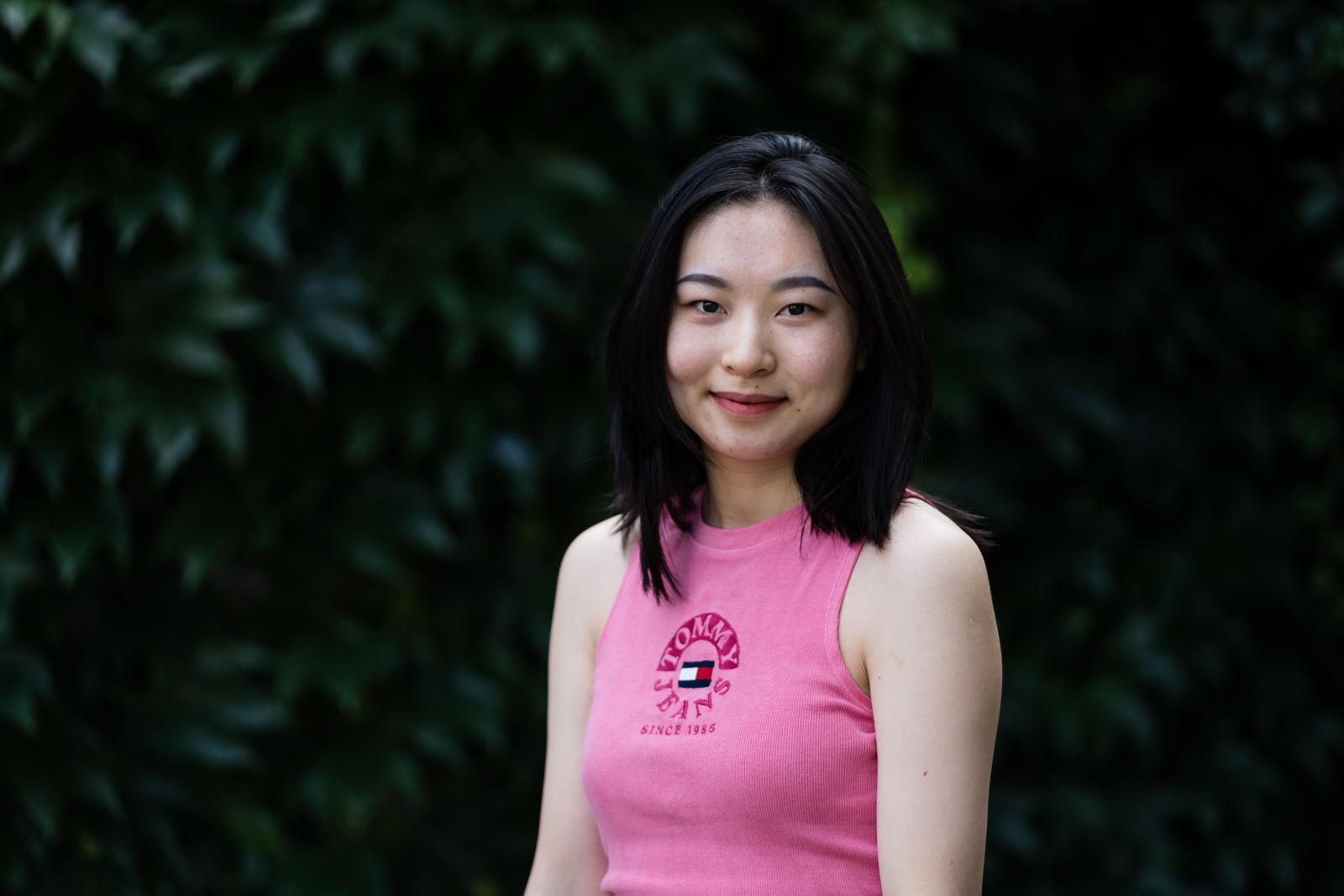People
Brno is an oasis of peace for me, I feel relaxed here, says Chinese doctoral student Xia

Xia Peng comes from the most populous country in the world. She grew up in a big city in the east of China, in Yancheng. During her master's study, she tried without much hope to write an e-mail to the capacity of her field – Martin Pumer. He immediately wrote her off and invited her to join his team at CEITEC BUT. Together with other colleagues, they are discovering the possibilities of microrobots. And in the meantime she has already managed to win two competitions.
You came to Brno last February. How did you handle the transition to a foreign city?
Well at first it was very hard to fit in because it's a completely different environment. China is dotted with huge cities, with no chance to see nature, hills, beautiful views. You'd just have to travel a long way to get there. But here? I'm in Brno, in the city, but after work I go for a walk and I see beautiful panoramas, landscapes. And I immediately calm down and feel at ease. It's just a great feeling. Plus, the people here are very nice.
So you'd like to stay here after your studies? Or maybe elsewhere in Europe?
Maybe I'll find some more postgraduate study here, because I really like it. But eventually I will go back to China because that's where my parents are and that's where I belong. It wouldn't be a good choice to stay here too long.
You are in Martin Pumera's research group, you are involved in microrobots. What exactly are you researching?
I completed three projects that focused on microrobots that purify water. For example, I bottled water from the river and took it to the laboratory. I put in about 1 mg of light-powered microbots and waited an hour or two. I then took samples and examined whether the micromachines had removed the contamination. But this is still in the laboratory phase. We are not able to come to the river and pour microrobots there because we would have no control over them. They'd float away and we wouldn't have any results. But we can take them out of the bottles by magnetism and reuse them.

So in still waters they could already be used?
As I said, it's still in the lab phase and practical use in the real world is still a long way off. I am now focusing on three types of pollutants: nitro-aromatic explosives, dyes and microplastics. I am looking for what materials can be used for microrobots and then use them to break down these unwanted substances. For example, hematite, which exhibits light-driven motion and can be controlled by a magnetic field, would be a good choice for the decomposition of picric acid. In addition, they can exhibit so-called self-assembling behaviour due to the dipolar moment in the structure.
With your research on microplastic degradation you were the first in the internal grant competition of the BUT. But apart from that, you also won the Brno Ph.D. Talent. Can you elaborate more on what the research was about?
First, as part of an internal grant competition at the BUT, I proposed to use light-driven microrobots that can produce ROS to attack, or let's say effectively decompose, microplastics in water. A project Brno Ph.D. Talent involved the removal of bacterial biofilms, which is a community of microorganisms attached to a surface that work together to defend themselves and form a kind of shield of excreted polysaccharides. Biofilms are considered to be the biggest cause of economic losses in medicine and industry. Therefore, we designed light-driven hematite and silver microrobots, in addition to having self-assembling and reconfigurable properties for fast and efficient removal of biofilms from solid surfaces.
What do you consider to be your biggest success so far and what would you like to achieve?
Definitely a Chinese scholarship and winning a Brno Ph.D. Talent. These are my biggest achievements so far. I can see myself in ten years as the head of my own research group somewhere in China. And I would like to be a professor and guide students. I also think that in ten years we'll have made a lot of progress in the microrobot industry. By then we will definitely be cleaning industrial wastewater with microrobots. But I also expect progress in biomedicine. I assume they will already be used to heal wounds faster, etc. I can't imagine much internal use yet, that will be an even more complicated process.
(CEITEC VUT)
A thin surface on the phone instead of four lenses. Metasurface will help us analyse our lunches one day
Awarded student Jiří Kabát uses an electron microscope to measure the temperature of nanoparticles
“I expected chaos, dirt and mess,“ says a researcher from CEITEC BUT who taught children in the Himalayas
Simpler bone regeneration process. CEITEC researcher tests unique combination of titanium and hydroxyapatite
Innovative composite from TRICERA ensures lower weight of safes or higher resistance of police shields